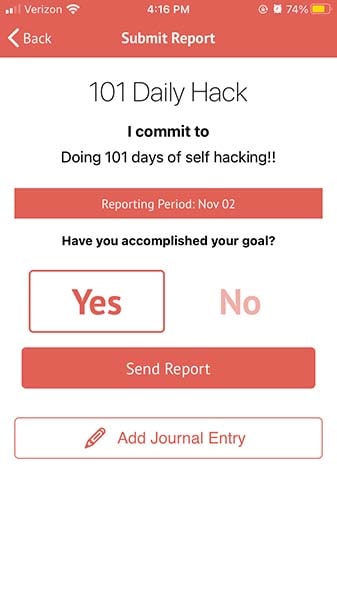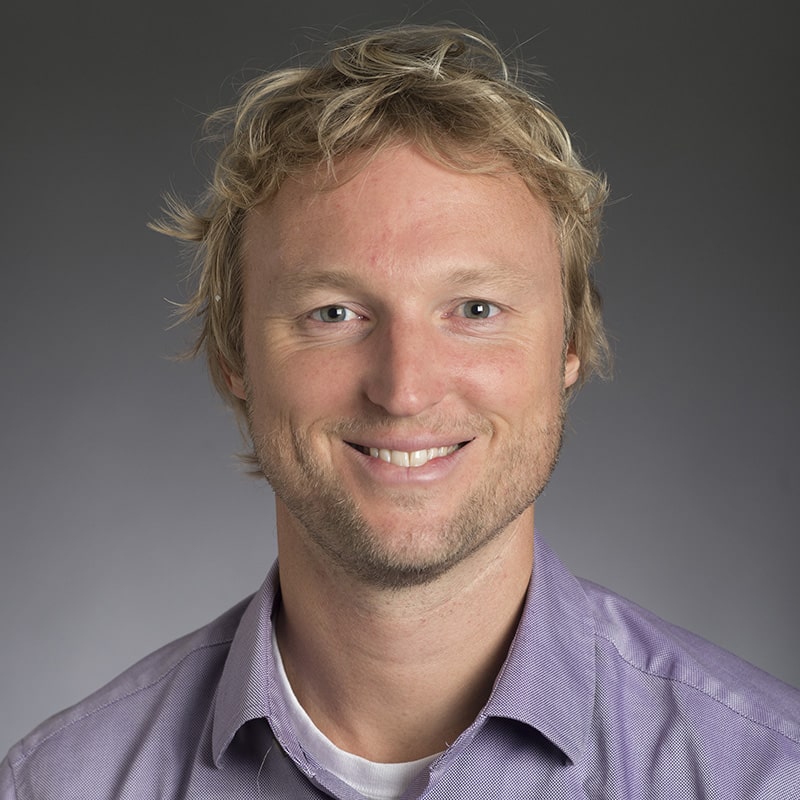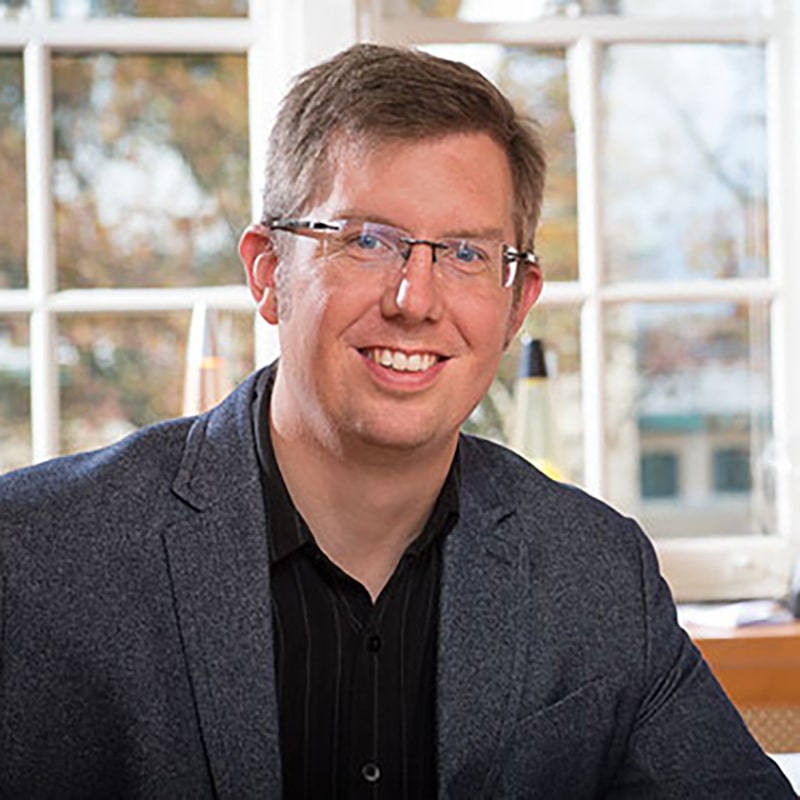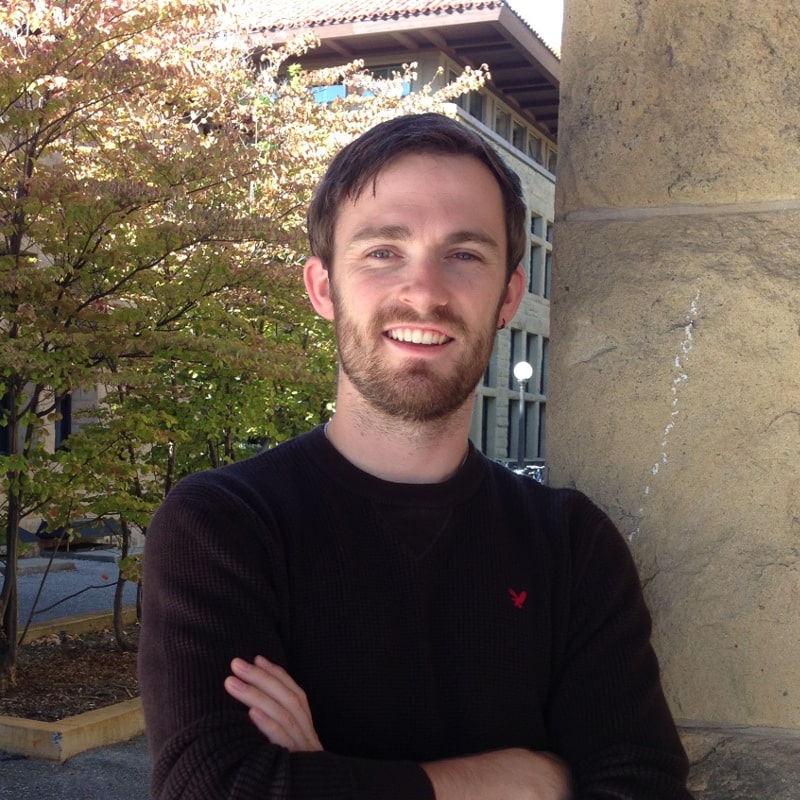'Hack Your Life' Helps Students with Health, Academics
A new course at Carnegie Mellon University helps students find new ways to see the world and live a happy, healthy and fulfilling life
By Cameron Monteith
Media Inquiries- Dietrich College of Humanities and Social Sciences
- 412-268-9309
The new Dietrich College course titled "Hack Your Life: The Science and Practices of Student Health and Well-Being" seeks to highlight the psychology behind modern student's habits, mental health and academic success. In other words, the goal of the course is to help students learn how to live a more fulfilling life.
The course is led by three professors from the Department of Psychology: David Creswell, Erik Thiessen and Kody Manke. Creswell conceived of the course after witnessing how many college students were struggling in his ongoing Life@CMU Research Project.
"College students worldwide are reporting more stress, anxiety and depression — and asking for ways to improve their mental health," said Creswell, an associate professor of psychology, "It just so happens that we have a growing body of scientific evidence that describes ways to help students. This class offers a deep dive on these topics in a discussion-oriented course."
Thiessen, director of undergraduate studies and associate professor of psychology, emphasizes the universality of the concepts covered during the course.
"Looking at the college experience over the last 30 years, it is evident that students are struggling on a variety of dimensions regarding mental health, not just at Carnegie Mellon but worldwide," said Thiessen. "It seemed like an important time to tackle these issues head on by showing students how to be happier and more effective with their lives."
Manke, an assistant psychology professor of psychology, sees the course as a way to introduce students from all backgrounds to the world of the social sciences. "It's a class designed to introduce the social sciences and the way they work through the framework of how people can live more fulfilling lives, i.e., being healthy, happy and wise," said Manke. "I hope students learn to think about the world differently — using science and psychology to think about social problems in an evidence-based and critical way."
"It's a class designed to introduce the social sciences and the way they work through the framework of how people can live more fulfilling lives, i.e., being healthy, happy and wise," said Manke. "I hope students learn to think about the world differently — using science and psychology to think about social problems in an evidence-based and critical way."
The content of the course focuses on understanding the typical modern student experience through the analysis of the Life@CMU Project, contemporary research papers and articles along with other supplementary material. The application of the content by students is illustrated through a "101 Day Self-Hack Project."
The "hack" helps students find ways to practice foundational skills during their daily life, like getting enough sleep, exercising, studying, meditating, etc. Students complete assigned tasks like journaling or meditating for weeks at a time. The hack allows students to encounter a variety of self-reflection methods and to begin incorporating the tasks beyond the assigned periods.
Samuel Straus, a Tepper School of Business student, was attracted to the course because of its focus on the student experience.
"It's a 'how-to-be-better' course," said Straus. "It's a guide to doing college better by not pointing out academics but pointing out the foundational parts of us and showing us how to best optimize those parts."
Brandon Darbunauth, a student in the course pursuing a degree in the Department of Mathematical Sciences, notes how these hacks have changed him for the better.
"You can learn to express yourself differently," said Darbunauth. "I wasn't a person that journaled, but now I can engage and improve myself through reflection. Incorporating some of the hacks into my daily routine wasn't even that difficult in most cases."
Elise Delgado, a Department of Psychology student, believes that anyone can benefit from the material and lessons in the course.
"I think the information and skills within 'Hack Your Life' are applicable to anyone," said Delgado. "Even other professors should hear these methods and information."
Creswell is excited by the positive response the "Hack Your Life" course has received and looks forward to the impact it might have on students as they continue their academic journeys.
"We hope to grow this course in the coming years," said Creswell," so that every CMU student can take it. Mental health challenges are on the rise, and we can all benefit from taking a little time to work on ourselves."


